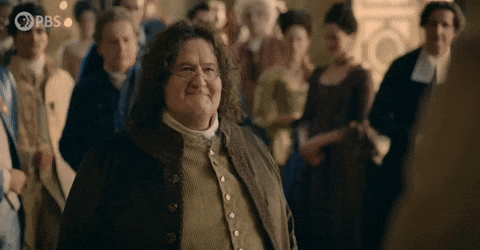- Searcher Systems
- Posts
- Half a truth
Half a truth

Among other things, I'm a Philadelphian, so my fondness for the founding fathers might be a tad excessive. But by most accounts by 1776, Benjamin Franklin was a rockstar; a scientist, inventor, scholar, and statesman all in one. Risking hanging to sneak off to France during a war with Britain, his goal? Raise funds, secure arms, and ink an alliance with the French.

Franklin's journey is a treasure trove of entrepreneurial lessons.
True to his name, he believed in frankness, finding common ground, and charming the breeches off anyone within earshot. He waltzed into the French court like it was his backyard BBQ, effortlessly winning hearts, minds, and crucial support for America's war efforts. A major reason why Franklin was a more effective diplomat than his counterparts was his relative ease in navigating the French court, particularly his relationship with the French foreign minister, Vergennes. Franklin was the only American delegate to earn Vergennes’ respect. It was almost a bromance. They end up being profoundly, deeply in admiration of one another and Vergennes realizes that he, as a master statesman, has met his equal in Benjamin Franklin.
I’m not a massive fan of the Apple TV series 'Franklin.' But theres a good scene there where Vergenne quips: "It appears we've lied our way into a partnership"? Franklin's response? "Lied? No. We've merely anticipated a future truth." Anticipating future truths is kind of an entrepreneur’s playground. We need to tell a story of what a company can be in 3-5 years. Obviously optimism is one thing, but lying to investors is a path paved with landmines. Striking a delicate balance between optimism and realism is crucial. By demonstrating integrity, providing realistic projections, being transparent about challenges, and highlighting team strengths, founders can build strong relationships with investors based on mutual trust.
Franklin's arrival was a grand spectacle. The French adored him, seeing in him the embodiment of liberty and practical wisdom. Entrepreneurs, take note, your image matters. Franklin knew how to leverage his persona for the greater good, much like we craft our brand narratives.
As Franklin donned multiple hats in France; diplomat, purchaser, recruiter, he faced a common entrepreneurial challenge: limited resources. Congress sent him with meager funds, expecting miracles. Sound familiar? Entrepreneurs often juggle grand ambitions with shoestring budgets. Franklin's solution? Hustle harder. Franklin was the king of making things happen with next to nothing. Limited funds? No problem. He sweet-talked the French into coughing up some serious cash and resources.
When facing financial uncertainty, Franklin turned on the charm and negotiation skills. He secured a verbal promise of French aid and swiftly set up shop in Passy, where he received the first cash infusion. Lesson learned? Don't wait for perfect conditions; make the most of what you have and hustle for more.
Franklin's Parisian escapade isn't just a history lesson; it's a crash course in entrepreneurial resilience. He faced financial uncertainty, navigated choppy diplomatic waters, and still managed to come out on top. That's the spirit, folks. Adapt, persevere, and hustle like your business depends on it, because it probably does. You might just end up changing the game, one charming conversation at a time.
Let's delve deeper into the art of deal-making and the invaluable lessons we can learn from Franklin and Vergennes' negotiations for a peace treaty. Here are three key takeaways:
🤌🏻 Patience and Persistence: Franklin and Vergennes didn't rush into a deal; they played the long game. Negotiating a peace treaty takes time, patience, and persistence. Entrepreneurs can't expect to seal a game-changing deal overnight. It requires building trust, understanding each party's needs, and navigating complexities with finesse.
🥐 Strategic Alliances: Franklin's ability to forge a strong alliance with Vergennes was pivotal in securing France's support for America's war efforts. Entrepreneurs can apply this lesson by cultivating strategic alliances and partnerships that bolster their business objectives. Whether it's securing funding, accessing new markets, or gaining industry expertise, the right alliances can be a game-changer.
🧗 Flexibility and Adaptability: Negotiations are rarely linear; they're full of twists, turns, and unexpected challenges. Franklin and Vergennes displayed remarkable flexibility and adaptability, adjusting their strategies as needed to overcome obstacles and reach a mutually beneficial agreement. Entrepreneurs must be willing to pivot, innovate, and explore alternative solutions to navigate complex negotiations successfully.
I couldn’t find the line from the show about anticipating future truths as being reliably attributed to Franklin, but I pulled up a copy of the 1758 volume of Franklin’s iconic text Poor Richard’s Almanack, there was something almost as good; "Half the Truth is often a great Lie" was, indeed, written by Franklin, listed in the almanac between "The first mistake in publick business, is the going into it," and "The way to see by faith, is to shut the eye of reason.”
